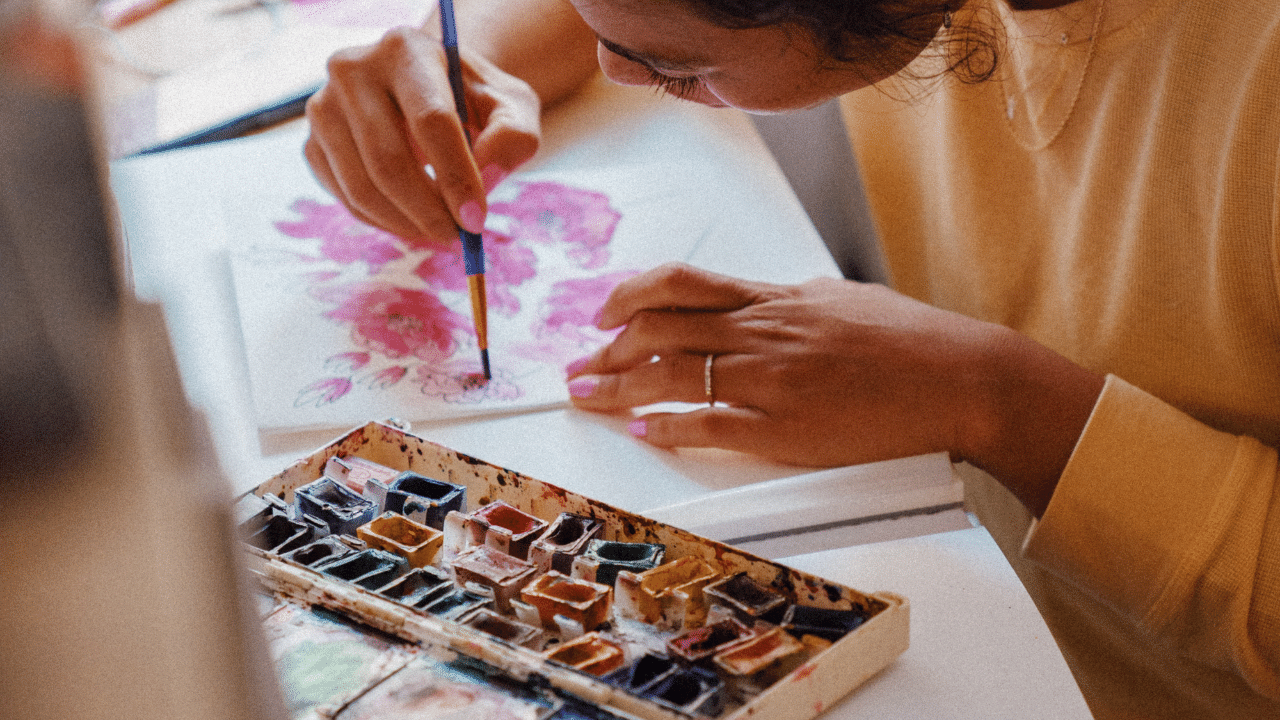It comes as no surprise that the nursing profession is stressful. According to a recent study, over half of all nurses experience high-stress levels. Between long shifts, caring for multiple patients, and the constant looming of life versus death on each shift, many nurses experience emotional and physical exhaustion.
Some of the physical impacts of stress can include:
- Insomnia
- Respiratory issues
- Fatigue
- High blood sugar
Mental impacts of stress can include:
- Depression
- Anxiety
- Heightened sedative hormone levels
To avoid these major stress impacts, we’ve compiled a list of stress relief practices. These activities and self-care remedies can help you relax and treat yourself – because you deserve it!
Painting
Art therapy is a great way to express yourself and reduce cortisol levels (the hormone that causes stress). A study done for Art Therapy showed that individuals that participated in at least 45 minutes of art therapy showed 75% lower cortisol levels! Painting is just one of the many great ways to practice art therapy.
Painting can be a soothing and therapeutic way to let your creative juices flow while not having to put too much pressure on yourself. If you’re interested in learning more about how painting can help reduce stress, check out our recent podcast episode with Erica Pang, an art therapist based in Vancouver. Erica discusses how painting is a great mental health practice.
Float Therapy
A floatation tank, or sensory deprivation tank, as it’s more formally called, is a soundproof pod-like tank with about a foot of body temperature, saltwater. The point of the pod is to be cut off from any outside stimulation and be in a completely relaxed state. Multiple studies have found that this type of floatation can help decrease anxiety and relieve pain, such as tension headaches.
If you’re interested in learning more about the practice of floating, stream one of our episodes from our floating series of Operation Happy Nurse.
Acupuncture
Traditional Chinese Medicine (TCM) teaches that acupuncture relieves stress by promoting the movement of Xi in the body. According to TCM, energies can get stuck in the body due to stress. This practice helps stimulate acupoints which can help release endorphins. Acupuncture has also been proven to help lower cortisol levels and blood pressure.
Sound relaxing? Check out our series where Carly and Shannon interview acupuncture experts.
Rage Rooms
If you’re looking for a more nitty-gritty way to relieve some stress, a rage room might be for you! Rage rooms really are all the rage for folks trying to unwind and smash everything from kitchen tables to TVs. Most rooms are replicas of rooms in a house or are just filled with a bunch of random objects. These rooms can be a great way to release built-up tension and anger caused by the stressors of your job. Located in most major cities, you’re sure to find a room near you.
You can check out our Operation Happy Nurse episodes where we talk to multiple rage room owners about their experiences.
Having a job as stressful as nursing means it’s important to take time for yourself away from the stress of day-to-day work. Taking the proper steps to care for yourself and trying to mitigate some of the stress that comes with the nursing profession can greatly improve both your mental and physical well-being.




